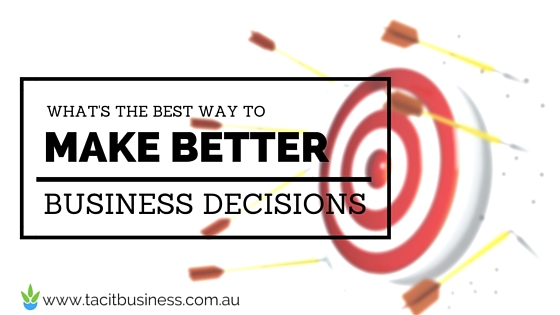Have you ever felt like you might as well be throwing darts at a board while blindfolded when making decisions in your business? Eenie meenie minie moe?
Because despite being in the “information age” you still feel somewhat in the dark. Sometimes it’s the reverse. You have data up to kitty’s bow but none of it shines a light on the right path.
Two strings to the better decisions bow
Firstly, the data needs to be collected. Then it needs to be turned into useful information. Semantics you say? I won’t go into a lot of detail, because it’s really a bit boring, but data is just the numbers, without context or organisation. Data by itself doesn’t mean anything.
Data vs Information
Average sale per customer is data. Organised by month and showing seasonal variations, that data becomes information.
Or maybe when all your overheads are collated they show an increase on last year, even though you were able to negotiate a stay on your office rent and reduction in your phone contract, indicating you need to review your pricing.
What if you collected data about your clients in your CRM, so you could extract demographic information to refine your marketing? Sounds a bit fancy but it’s super useful.
This information is powerful.
Where to look before making business decisions
We’re fortunate these days, that we have umpteen choices to help us collect data and then turn it into something useful.
- CRM systems
- Accounting software
- Scheduling software
- Social media analytics
- Order processing systems
Get it right from the beginning
A good result requires some forethought and planning, but it’s well worth the effort.
Imagine making decisions based on solid information, that allows you to feel confident, in control and going places. No more feeling slightly ill or procrastinating because you just can’t be sure. Who’s not up for that?
You may already be using systems that can capture data for you and turn it into information. To get the most benefit from these systems, it’s important to decide what information you need in order to make good business decisions. It may be that you need to rejig your current systems and reports to ensure they’re collecting and organising the data in a way that’s meaningful to you. It may be that you need to implement some new systems.
As busy as you are, taking a step back and consciously considering what information would help you make good decisions, and what data you need to provide that information, will undoubtedly help your business move in the right direction.


